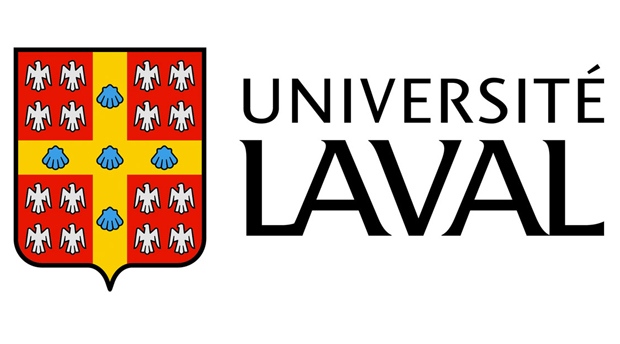Current courses
MAT 1900 Mathématiques de l'ingénieur 1, Winter 2025
Course Description:
Complex numbers: definition and properties, rectangular and polar representations, locus of solutions to complex equations. Solution of ordinary differential equations: first order
equations, linear second order equations, order reduction. Differential
calculus of several variables, maxima and minima, constrained extrema.
MAT 7225 Équations aux dérivées partielles, Autumn 2024
Course Description:
First order equations: method of characteristics, nonlinear conservation laws, Rankine-Hugoniot and entropy conditions. Classification of second order linear equations and their canonical forms. Wave equation in one, two and three dimensions. Separation of variables and its application to the heat and wave equations. Heat equation: solution by Fourier transforms, fundamental solutions, maximum principle. Elliptic equations: harmonic functions, maximum and comparison principles, Green's functions, Harnack inequality.
MAT 4410/7235 Résolution numérique des EDO et des EDP, Autumn 2024
Course Description:
Approximation of functions. Numerical integration. Numerical methods for systems of ordinary differential
equations. Finite difference methods for partial differential equations.
Past Courses
Semester/full-year courses
- MAT 7225 Équations aux dérivées partielles, Université Laval, Autumn 2023
Course Description:
First order equations: method of characteristics, nonlinear conservation laws, Rankine-Hugoniot and entropy conditions. Classification of second order linear equations and their canonical forms. Wave equation in one, two and three dimensions. Separation of variables and its application to the heat and wave equations. Heat equation: solution by Fourier transforms, fundamental solutions, maximum principle. Elliptic equations: harmonic functions, maximum and comparison principles, Green's functions, Harnack inequality.
- Modélisation mathématique, Université Laval, Winter 2023
Course Description:
Introductory course in mathematical modelling. Topics include: dimensional analysis, modelling
of chemical reactions using the law of mass action, Michealis-Menten kinetics; compartmental
models and epidemiological modelling; diffusion, random walks, heat equation and its solution by
Fourier transform; traffic flow, nonlinear conservation laws, method of characteristics and the
propagation of discontinuities; continuum mechanics, spatial and material coordinates, conservation
of mass and linear momentum. Reynolds transport theorem, stress-strain relations, Cauchy's stress
theorem.
- Analyse numérique matricielle, Université Laval, Winter 2022 and 2023
Course Description:
Elements of matrix analysis: vector and matrix norms, eigenvalue and singular value decompositions,
conditioning of matrices and sensitivity to perturbations. Direct methods for solving linear systems:
Gaussian elimination, stability analysis, banded systems. Least squares problems and its conditioning,
solution by QR decomposition. Iterative methods: Jacobi, Gauss-Seidel and SOR iterations, convergence
analysis by spectral radius. Nonstationary methods: Richardson, conjugate gradients, GMRES and their
preconditioned versions.
- Mathématiques de l'ingénieur 1, Université Laval, Winter and Autumn 2021, Autumn 2022
Course Description: Complex numbers: definition and
properties, rectangular and polar representations, locus of
solutions to complex equations. Solution of ordinary differential
equations: first order equations, linear second order equations,
order reduction. Differential calculus of several variables, maxima
and minima, constrained extrema.
- Résolution numérique des EDO et des EDP, Université Laval, Autumn 2020–2022
Course Description:
Approximation of functions. Numerical integration. Numerical methods for systems of ordinary differential equations. Finite difference methods for partial differential equations.
- Calculus II, HKBU, Spring 2020
Course Description:
Integral Calculus: antiderivatives, definite integrals, techniques of integration. Applications: areas, volumes and surfaces.
Parametric curves and polar coordinates. Introduction to infinite sequences and series, convergence tests, power series.
- Numerical Methods for Differential Equations, HKBU, Spring 2018 and 2020
Course Description: The course serves as an introduction to numerical methods for ordinary and partial differential equations. The course will cover Runge-Kutta methods for initial value problems, shooting methods for two-point boundary value problems, finite difference, finite volume and finite element methods for elliptic problems, method of lines for diffusion problems, and upwind methods for hyperbolic problems. In addition to the theoretical properties of the numerical methods, emphasis will be placed on their implementation in MATLAB/Octave.
- Linear Algebra, HKBU, Autumn 2015, Autumn 2019
Course Description:
Introduction to linear equations, matrices, determinants, vector spaces and linear transformations, bases, inner products, orthogonality, eigenvalues and eigenvectors, diagonalization, least squares problems and other applications. The course emphasizes matrix and vector calculations and applications.
- Calculus I, HKBU Spring 2015, Spring and Autumn 2016, Autumn 2017, Spring and Autumn 2018
Course Description: First course in differential and integral
calculus. Topics include: Review of pre-calculus, limits and continuity,
differentiation and its applications, indefinite and definite integrals,
applications of integration.
- Estimating the World, HKBU, Autumn 2014
Course Description: First-year numeracy course, with focus on
the understanding and use of estimation in the context
of complex, real-life applications. A few simple numerical
techniques (root-finding, interpolation, least-squares fit and quadrature)
are introduced to help with the modelling, and MATLAB is used to
compute approximations of the relevant quantities. The aim is to improve students' ability
to reason with quantitative information in daily life, so that
they are able to ask pertinent questions and produce educated guesses
through sensible assumptions and appropriate methodologies.
- Algèbre I, Université de Genève, Autumn 2013
Course Description: First-year course on linear algebra.
Contents include abstract vector spaces, linear maps,
eigenvalues and eigenvectors, inner product spaces, spectral theorem.
- Analyse Numérique des Équations aux Dérivées
Partielles, Université de Genève, Autumn 2012
Course Description: Derivation of some PDEs of mathematical
physics. Finite difference and finite volume methods. Spectral methods.
Finite element methods: derivation and analysis. Time-dependent problems,
CFL condition.
- Analyse Numérique, Université de Genève, 2010–11,
2011–12 and 2012–13 (full year)
Course Description: Introduction to Scientific Computing and
analysis of numerical algorithms. Topics include numerical integration,
interpolation and approximation, numerical solution of ODEs, numerical
linear algebra and least squares, eigenvalue problems, solution of nonlinear
systems of equations.
- Mathématiques pour Informaticiens, Université de Genève, Winter 2010
Course Description: This is a first-year service
course for computer science students. It covers topics in calculus and
linear algebra usually seen in the second semester, such as differential
and integral calculus in several variables, bilinear and quadratic forms,
optimization and Fourier series. This course lays the theoretical foundations
for the second-year numerical analysis course, which is mandatory for
computer science students.
Short courses
- Stationary Methods for Multiphysics Problems (with H. Tchelepi), 2021 CRM Summer School: Solving large systems efficiently in multiphysics numerical simulations, online, May 31-June 10, 2021
Course Description: A six-hour mini-course (4 x 1.5
hours, fourth lecture given by H. Tchelepi) on iterative methods and
multiphysics: examples of multiphysics problems, phase field and
domain decomposition. Fixed point methods: Newton's method,
stationary iterative methods for linear problems. Krylov methods and
the conjugate gradient method: derivation and convergence,
preconditioning.
- Introductory Domain Decomposition Short Course (with L. Halpern and M.J. Gander), 25th International Conference on Domain Decomposition Methods, St. John's, Newfoundland and Laborador, Canada, July 22, 2018
Course Description: A one-day introductory course on
basic domain decomposition methods, consisting of three one-hour
lectures on theoretical aspects in the morning and a three-hour
practial session in the afternoon. The morning sessions consist of
lectures on Schwarz methods, Dirichlet-Neumann and Neumann-Neumann
methods, and on modern coarse spaces. During the aftenroon session,
participants experiment with the above methods using sample Matlab codes.
- Dirichlet-Neumann and Neumann-Neumann methods, Summer School on Domain Decomposition Methods à Nice 2018, Université Côte d'Azur, France, June 19-21, 2018
Course Description: A 1.5-hour lecture and a 2-hour
practical session (with G. Ciaramella) during a three-day short
course on domain decomposition methods. In the lecture portion, we
introduce the Dirichlet-Neumann (DN) and Neumann-Neumann (NN)
methods, which are naturally formulated on non-overlapping domain
decompositions. We discuss their convergence behaviour on two
subdomains, first in 1D, then in 2D using Fourier techniques seen in
Lecture 1. The influence of geometry and relaxation parameters will
be discussed, and we explain how these methods can be extended to
yield FETI and BDDC methods, which are very powerful methods that
can be used for problems with complicated geometries.
- Numerical Methods for Spectral Theory, 2016 CRM Summer School on Spectral Theory and Applications,
Université Laval, Quebec, Canada, July 4–14, 2016
Course Description: A 5-hour mini-course on numerical methods for spectral theory: finite difference and finite element methods for PDE eigenvalue problems, algorithms
for matrix eigenvalue problems, applications to vibrating plates. Lecture notes and sample codes are available.
Courses for which I was a TA
- Analyse Numérique, Université de Genève, Autumn 2009
Instructor: Dr. Sébastien Loisel
- Analyse Numérique, Université de Genève, 2008–09 (full year)
Instructor: Prof. Martin Gander
- Analyse Numérique, Université de Genève, Winter 2008
Instructor: Prof. Martin Gander
- Introduction to Scientific Computing, Stanford University, Winter 2004
Instructor: Prof. Gene Golub
- Numerical Linear Algebra, Stanford University, Autumn 2003
Instructor: Prof. Gene Golub
- Data Structures and Algorithms, McGill University, Autumn 2000 & 2001
Instructor: Prof. Godfried Toussaint
Course-related material



